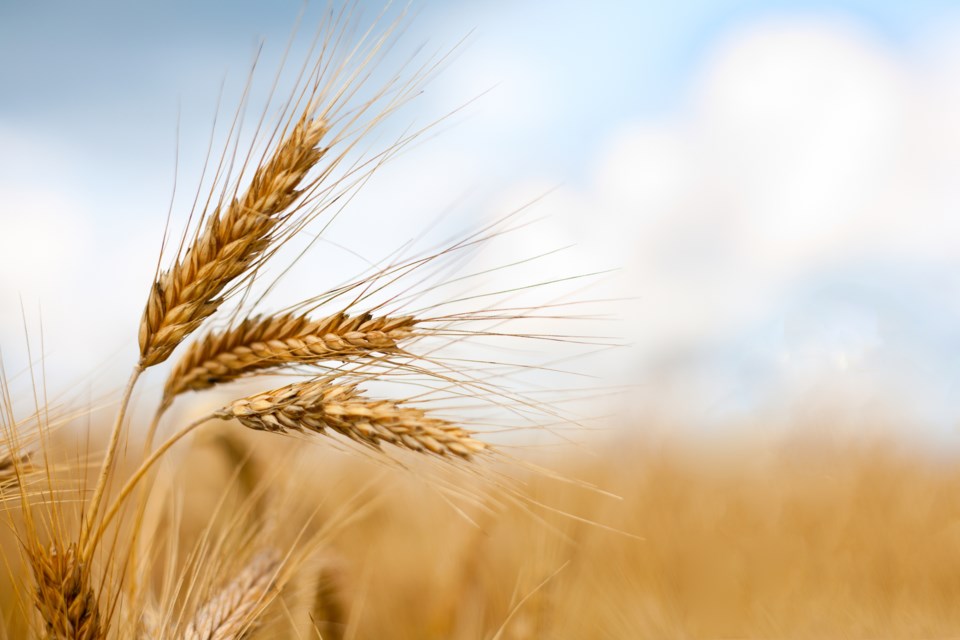WEYBURN – Farmers may be looking at “bumper crops” this harvest season, said a Weyburn area farmer, with some crops possibly ready for an early harvest soon.
Strong storms blew through the southeast region causing damages to crops, buildings, bins and machinery, with some hay swaths blown across fields.
The region also received rain in the past week which will help crops develop their seeds and kernels, but it also caused delays for some producers who were waiting for cut hay to dry down.
Dale Paslawski, who farms in the Cedoux area north of Weyburn, said he thinks some crops may be ready for harvesting within a couple of weeks.
“I see canola that’s done flowering and is fully potted, and will start turning colour here shortly. There are some early pulses, like lentils and peas, that are going to be 10 to 15 days from desiccation or swathing,” he said.
“The crops in general are absolutely gorgeous. I’ve never seen a crop this good, and we’re in for a bumper crop unless it hails or freezes some time in August, which we hope won’t happen,” he added.
Scattered rain showers were received across the area, with the Radville area seeing some of the highest amounts of precipitation with more than 50 mm of rain, with most areas receiving between nil and 30 mm.
Cropland topsoil moisture is rated as 17 per cent surplus, 62 per cent adequate, 10 per cent short and 11 per cent very short.
Hay and pasture land topsoil moisture is rated as 16 per cent surplus, 71 per cent adequate, six per cent short and two per cent very short.
Paslawski said the land in his area has received the most moisture of the last five or six years, and the moisture content is “very adequate” with some fields still seeing some standing water.
Looking at crop development, 53 per cent of fall cereals, 51 per cent of spring cereals, 54 per cent of oilseeds, and 59 per cent of pulses are rated to be at their normal stages of development for this time of year. The recent heat and humidity has accelerated growth of some crops, while excessive moisture has slowed others.
In terms of insects and diseases, there have been some issues, with grasshoppers the biggest problem right now, said Paslawski.
“A lot of producers had to spray for flea beetles earlier in the season, but now flea beetles aren’t much of an issue any more, but grasshoppers have been a problem for a lot of producers. They’re getting larger now and they’re going to start flying shortly. They did a lot of damage in pulses like lentils, and we even had them in our wheat crop. They were quite hungry this year, and caught us off-guard since it was wet. We didn’t think they would hatch, but they did,” he said.
For diseases, some pulse crops are having problems, as he saw one field of lentils that might be a write-off due to root rot diseases.
“Some pea crops are battling the same disease of root rot, and it’s going to have a major impact on yield and on harvesting these crops,” said Paslawski, noting a number of producers have had to had aerial crop spraying to apply fungicide on various crops, including canola, lentils and cereals like durum and spring wheat.
Looking at the upcoming harvest, he said, “At this time I would expect to see a lot of our crops to yield well above average for the majority of crops.”
Haying operations continue in between showers, with livestock producers currently at 26 per cent of the hay crop cut, and 22 per cent is baled or put into silage. Hay quality is rated as 37 per cent excellent, 53 per cent good and 10 per cent fair.
Most of the crop damage this week was due to strong wind storms, lodging, heat and grasshoppers. Producers are busy haying, doing yield assessments, applying pesticides and getting equipment ready for harvest.





